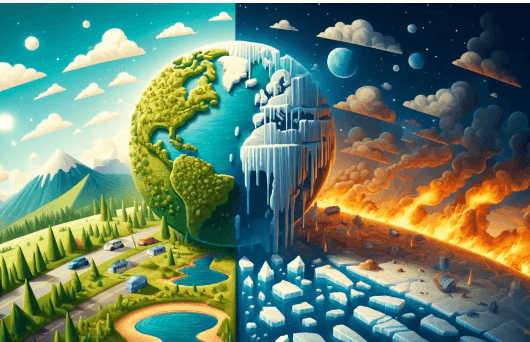Drawing:8qjbyweuw4s= Global Warming

The phenomenon of Drawing:8qjbyweuw4s= Global Warming, primarily fueled by human-induced greenhouse gas emissions, presents a complex challenge that not only threatens ecological stability but also human livelihoods. As we witness unprecedented shifts in weather patterns and biodiversity loss, the urgency for effective solutions becomes apparent. This discussion will explore the intricate relationship between our actions and the consequent environmental repercussions, prompting a critical examination of potential strategies for mitigation. What avenues exist for meaningful change, and how might they alter our trajectory in the face of this escalating crisis?
Understanding Drawing:8qjbyweuw4s= Global Warming
Understanding Drawing:8qjbyweuw4s= Global Warming requires a comprehensive examination of the Earth’s climate system and the anthropogenic factors contributing to its changes.
The accumulation of greenhouse gases in the atmosphere, driven by our carbon footprint, significantly influences global temperatures.
Read More Drawing:16tykyk-J8c= Heart
Effective climate policy is essential to mitigate these effects, promoting renewable energy sources as a sustainable alternative to fossil fuels, thereby fostering a healthier planet for future generations.
Human Contributions to Climate Change
Contributing significantly to climate change, human activities have altered the natural balance of the Earth’s climate system. Key contributors include carbon emissions from fossil fuels, industrial pollution, and deforestation practices.
Additionally, agricultural runoff and urban development exacerbate environmental degradation, while transportation impact and rising energy consumption further intensify these challenges.
Addressing these issues is crucial for mitigating future climate consequences and promoting sustainability.
Effects on Ecosystems and Weather
The Drawing:8qjbyweuw4s= Global Warming in the Earth’s climate system driven by human activities have profound implications for both ecosystems and weather patterns.

Species migration is increasingly influenced by temperature fluctuations, while habitat loss threatens ecosystem resilience.
Furthermore, biodiversity impacts are evident as species struggle to adapt.
Changes in precipitation patterns exacerbate these challenges, disrupting delicate ecological balances and highlighting the urgent need for awareness and understanding.
Solutions and Mitigation Strategies
Addressing the challenges posed by global warming requires a multifaceted approach that combines innovative technologies, policy reforms, and community engagement.
Key strategies include promoting renewable energy sources, implementing carbon capture technologies, and fostering sustainable practices.
Read More Drawing:23vyczbybxu= Billie Eilish
Additionally, robust climate education, reforestation efforts, and waste reduction initiatives can significantly mitigate impacts.
Embracing green technology will further empower communities to contribute meaningfully to climate resilience and sustainability.
Conclusion
In conclusion, addressing Drawing:8qjbyweuw4s= Global Warming necessitates a multifaceted approach that includes reducing carbon emissions, enhancing renewable energy adoption, and fostering sustainable practices. By understanding human contributions to climate change, acknowledging the profound effects on ecosystems and weather patterns, and implementing effective mitigation strategies, a collective effort can be established. It is imperative to unite in the pursuit of a sustainable future, to protect biodiversity, and to ensure the resilience of the planet for generations to come.





